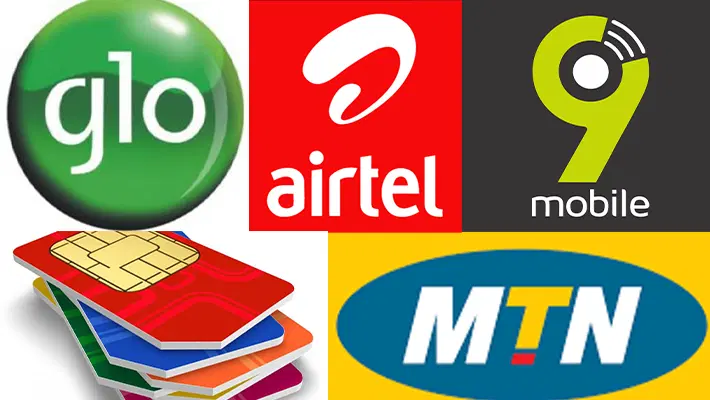After several months of surging prices and market instability, Nigerian households have finally received some good news — the price of Liquefied Petroleum Gas (LPG), popularly known as cooking gas, has dropped significantly to an average of ₦1,400 per kilogram across major cities.
Retailers across different states have confirmed that the cost of refilling a kilogram of cooking gas now ranges between ₦1,300 and ₦1,600, depending on the location and the supplier. This marks a major decline from the previous highs of nearly ₦2,000 per kilogram, which had pushed many families to the brink and forced some to revert to charcoal, firewood, and other less sustainable cooking methods.
A Welcome Drop After Weeks of Soaring Prices
In recent weeks, Nigerians have faced the harsh reality of skyrocketing cooking gas prices triggered by supply shortages, transportation challenges, and refinery-related disruptions. However, reports from multiple LPG retailers indicate that the market is beginning to stabilize, with supply lines improving and wholesale prices dropping.
According to gas plant operators, the price reduction is largely due to increased availability of domestic LPG, as well as resumed loading and distribution activities following temporary industrial disputes that had crippled the sector earlier.
One Lagos-based gas retailer explained that they now sell gas for between ₦1,400 and ₦1,500 per kilogram, down from ₦1,900 just two weeks ago. “The situation is looking better now. We are getting supplies more regularly, and that is why the price has started coming down,” the retailer said.
Market Observations: Regional Price Differences Persist
While the average price has dropped nationwide, some regional variations still exist.
- Lagos and Ogun States currently record some of the lowest retail prices, with most gas stations selling between ₦1,300 and ₦1,500 per kilogram.
- Abuja and neighboring states still see prices hovering around ₦1,500 to ₦1,600 per kilogram, though retailers there also confirm steady reductions.
- In Northern regions, the impact of transportation costs means consumers pay slightly more, ranging between ₦1,600 and ₦1,700 per kilogram.
Despite these disparities, there is a common trend of decreasing prices nationwide, offering hope that the cost may normalize further in the coming weeks.
Retailers Point to Improved Supply Chain and Market Stability
Industry insiders attribute this positive change to improved supply from major distributors, coupled with better coordination between importers, depots, and retail outlets.
In recent months, the domestic LPG market had struggled with limited product availability, resulting from factors such as pipeline disruptions, forex challenges, and delayed vessel deliveries. However, with increased product circulation, more marketers now have access to supply at competitive rates, making it possible to pass down the savings to consumers.
A dealer in Port Harcourt revealed that the cost of buying from bulk suppliers has dropped significantly, which naturally reflects on the retail market. “Before now, we were buying at over ₦1,000 per kilogram from depots, but it has reduced to around ₦700 or ₦750. That’s why you can now refill for ₦1,400 or less,” he said.
Government Actions and Market Forces Behind the Decline
The recent drop in gas prices has also been linked to government interventions and market adjustments aimed at stabilizing the energy sector. Following weeks of public outcry over the rising cost of living, regulatory authorities and the Ministry of Petroleum Resources reportedly engaged with key stakeholders in the gas sector to address supply bottlenecks and discourage hoarding.
The suspension of the Petroleum and Natural Gas Senior Staff Association of Nigeria (PENGASSAN) strike, which had disrupted gas supply earlier in the month, also contributed to restoring steady market flow.
By increasing the quantity of gas available in the system, supply pressure has eased, creating a healthier balance between demand and availability — a primary reason for the current price reduction.
Consumers React with Relief and Optimism
For many Nigerians, the news of the price drop comes as a much-needed reprieve amid the country’s ongoing inflationary pressures. Families who had cut down on gas usage due to high prices can now afford to refill their cylinders more frequently.
A resident of Abuja expressed relief at the development, saying, “It’s a big relief for us. We spent over ₦10,000 to refill a 12.5kg cylinder last month, but now it’s around ₦17,000 for two refills. This is the first time in months that we’ve seen such a reduction.”
Consumers across the country are now hopeful that this downward trend will continue, possibly bringing prices back to pre-crisis levels of around ₦900–₦1,000 per kilogram in the near future.
Economic Implications: A Boost to Household Spending Power
The decline in cooking gas prices is expected to provide a mild but positive ripple effect on household spending and small-scale businesses. Many food vendors, restaurants, and catering services depend heavily on LPG for daily operations.
With gas prices now easing, operational costs are likely to fall slightly, potentially helping to stabilize food prices in local markets. This development, experts say, could contribute to reducing the overall inflation rate in the coming months, especially if the trend continues.
Economic analysts also note that if supply remains consistent and domestic production increases, the cost of gas could stabilize permanently — enhancing Nigeria’s transition to cleaner energy sources.
Caution from Retailers: “Market Still Volatile”
Despite the encouraging developments, retailers are warning that the market remains volatile and could shift depending on several external factors. They cite foreign exchange fluctuations, international crude prices, and local transportation costs as major influences that could still cause short-term changes in gas pricing.
“Although the price is down now, it can rise again if supply becomes unstable or if the dollar rate increases. Everything in the market depends on those two key factors,” said a retailer in Kano.
The message from industry players is clear — while current prices are favorable, there is a need for continued monitoring and sustainable supply strategies to prevent future hikes.
Looking Ahead: Hope for a Stable LPG Market
Nigeria’s energy sector has long faced the challenge of balancing domestic consumption with consistent supply, but this latest drop in LPG prices represents a positive turn for both consumers and the market at large.
If the current momentum continues, industry experts predict that Nigeria could soon see gas prices stabilizing around ₦1,000 per kilogram, a development that would significantly ease household financial burdens and promote wider adoption of cleaner cooking energy.
Government agencies are also being encouraged to sustain monitoring mechanisms to ensure marketers do not exploit consumers or create artificial scarcity in the coming months.



